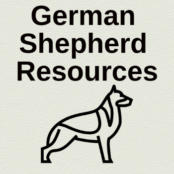Welcoming a new German Shepherd puppy into your home is a joyous occasion. Full of energy, curiosity, and potential, your puppy needs the right nutrition to grow into the strong, loyal companion characteristic of the breed. In this guide, we’ll explore the dietary essentials for German Shepherd puppies and provide a comprehensive look at the best puppy food options for them.
Choosing the right food for your furry friend is one of the most significant early decisions in his or her life. The food you select will influence not only your puppy’s growth but also their overall well-being and longevity. To ensure your German Shepherd grows up healthy and happy, it’s essential to understand what to look for in their diet.
Table of Contents
Essential Nutrients for German Shepherd Puppies
German Shepherd puppies are a large and active breed, known for their keen intelligence and protective nature. This means they require a nutrient-dense diet that supports their rapid growth and boundless energy. Here are the key nutrients that should be present in your puppy’s diet:
- Proteins: An animal-based protein forms the foundation of a German Shepherd’s diet. High-quality sources like chicken, turkey, and lamb are essential for developing strong muscles.
- Fats: A calorie-dense macronutrient, fat provides the energy necessary to fuel your puppy’s activities. Omega-3 and omega-6 fatty acids are particularly beneficial for coat health and brain development.
- Carbohydrates: While German Shepherds primarily derive their energy from proteins and fats, easily digestible carbs like brown rice and sweet potatoes can provide additional energy and fiber. Avoid food with low quality carbs such as corn and soy.
- Vitamins and minerals: Calcium, phosphorus, iron, and other essential vitamins and minerals are crucial for the development of your puppy’s bones, teeth, and overall immune system.
Ensuring these nutrients are present in balanced amounts will help promote healthy growth and development.
Good Ingredients in Puppy Food
High-quality puppy food for your German Shepherd should primarily consist of good, wholesome ingredients. Look for foods that include:
- Animal Proteins: The first ingredient should be a named meat source, like chicken or beef, and should be listed as a whole meat rather than a by-product.
- Whole Grains: Brown rice, oatmeal, and barley provide slow-burning energy and are less likely to cause spikes in blood sugar levels.
- Vegetables and Fruits: These are natural sources of vitamins, minerals, and antioxidants that contribute to overall health and well-being.
- Omega-3 Fatty Acids: From sources like fish oil, these are essential for healthy skin, a shiny coat, and the cognitive development of your growing puppy.
- Probiotics and Prebiotics: These promote a healthy digestive system and can support your puppy’s immune function.
It is also important to remember that different breeds may have unique nutritional requirements. Consult with your veterinarian or breeder for specific recommendations for
Selecting a puppy food that comprises these ingredients in their natural form without any unnecessary additions will provide the best foundation for your puppy’s health.
Ingredients to Avoid in Puppy Food
Just as it’s important to know what should be in your German Shepherd puppy’s food, it’s equally important to be aware of what should not be present.
- By-products and Fillers: These are lower-quality protein sources and often are not as easily digestible. They are used as fillers and can pose digestive problems for your puppy.
- Artificial Additives: Colorings, flavorings, and preservatives do not offer any nutritional value and can be harsh on your puppy’s young system.
- Excessive Grains and Gluten: A diet heavy in these ingredients can lead to digestive issues, including food intolerances and allergies.
By selecting foods that are free of these ingredients, you’ll reduce the risk of dietary-related complications for your growing German Shepherd.
Homemade Diets for German Shepherd Puppies
While high-quality commercial puppy foods generally offer a balanced diet, some owners prefer to prepare their pup’s meals at home. Here’s what to consider if you’re thinking about a homemade diet:
- Balanced Meals: Each meal should consist of lean meats, such as chicken or turkey, a healthy fat source like flaxseed oil, and vegetables, such as carrots or spinach.
- Raw Diets: Some owners opt for a raw diet for their puppies but it’s important to consult with a vet to ensure it’s being done safely and is providing all necessary nutrients. Raw diets can pose health risks if not prepared and served properly.
- Supplementation: Homemade meals should be supplemented with the right vitamins and minerals. Again, this is an area where professional guidance is invaluable to ensure your puppy’s diet isn’t lacking in any essential nutrients.
Homemade diets can work well for some puppies and offer an excellent option for those who prefer more control over their pet’s nutrition. However, it’s a commitment and requires careful planning to be effective.
Vet-Recommended Puppy Foods for German Shepherds
When it comes to the nutrition of German Shepherd puppies, their rapid growth and development stage require a diet tailored to their specific needs. Here are three vet-suggested puppy foods that cater to the needs of a growing German Shepherd:
- Hill’s Science Diet Large Breed Puppy Food: This formula is designed with optimal levels of calcium for controlled bone growth, a crucial factor for large breed puppies like German Shepherds to prevent joint problems later in life.
- Royal Canin German Shepherd Puppy Formula: Specifically crafted for German Shepherd puppies, this food supports digestive health and promotes balanced intestinal flora. It also contains specific nutrients, including EPA and DHA, to ensure the healthy development of bones and joints, accommodating their fast growth rate.
- Purina Pro Plan Focus Puppy Large Breed Formula: With high-quality protein sources and the right balance of essential nutrients, this food is designed to support the rapid growth rate of large breeds. It includes glucosamine that helps in building healthy cartilage, essential for the active lifestyle of German Shepherds.
The rapid growth phase of German Shepherd puppies necessitates a diet that is rich in proteins and balanced in calcium and phosphorus to support their skeletal development while preventing excessive growth that can lead to bone and joint issues. Ensuring their food is specifically formulated for large breed puppies is key to promoting their optimal health and development.
Checking for Recalls
Before committing to a specific brand of puppy food for your German Shepherd, it is crucial to research and stay updated on any possible recalls related to the pet food brands mentioned. Recall information can usually be found on the manufacturer’s website or through reputable pet health online platforms. Regularly checking for recalls ensures that the food you are providing is safe and has not been associated with any health risks.
Conclusion
Selecting the appropriate food for a German Shepherd puppy is a significant decision that influences their overall health, growth, and development. The options listed, Hill’s Science Diet Large Breed Puppy Food, Royal Canin German Shepherd Puppy Formula, and Purina Pro Plan Focus Puppy Large Breed Formula, are excellent starting points based on veterinarian recommendations. However, diligent monitoring of their health and growth, in addition to staying informed about food safety recalls, is essential in nurturing a healthy, vibrant puppy into a strong and loyal adult dog. Remember, always discuss with your veterinarian before making changes to your puppy’s diet to ensure it meets their individual needs.
A well-nourished puppy is likely to grow into a healthy and vibrant German Shepherd. At the heart of their well-being is a diet rich in the right nutrients, free of harmful additives, and tailored to their breed-specific needs.
As you set out to select the best food for your German Shepherd puppy, it’s important to understand your role in making their dietary choices. Each pup has unique nutritional needs, so it’s wise to consult with a veterinarian who can offer tailored advice based on your puppy’s health, age, and activity level.
Remember, the food you choose today sets the foundation for your puppy’s lifelong health, so make your decision carefully. By prioritizing nutrition, you’re investing in a long, healthy, and joy-filled life for your German Shepherd puppy.


